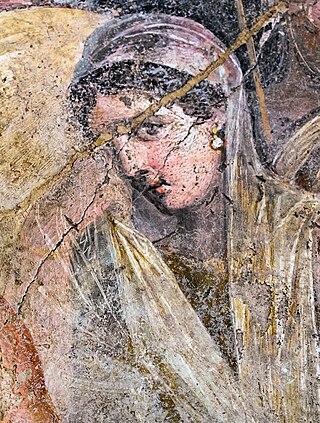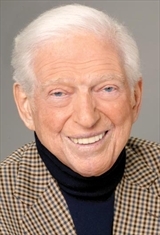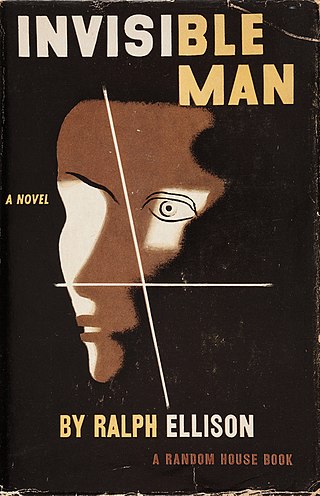Plot summary
The protagonist of this novel, Anthony Greville, is a Member of Parliament who is married with two children. His son Adam is seventeen and his daughter Sophie is eight. Despite the outward perfection of his life, Greville is having an affair with sculptor Natalia Jones, an enigmatic mother of two who is married to a husband in politics who cheats on her. Greville's wife is away at the family's country retreat for weeks on end and his children at their respective schools, so Greville enjoys his lover's company with minimal risk of being discovered. However, as smitten with Natalia as Greville is, he has a brief fling with a woman named Madeleine, as well.
In spite of his easy lifestyle, Greville is not a happy man. The focus of this novel is based on Greville's dissatisfactions and confusions. For instance, although Natalia does not make any demands on him, and his wife prefers not to see what is going on, Greville is torn between the two women. He wants to be with Natalia when he is with his wife and vice versa. What is more, he sees two people in his lover. To Anthony Greville, Natalia is an angelic figure who also symbolizes a diametrical opposite, specifically demonic. This dual perception of his lover leads him call her by two different names (Natalie and Natalia).
Greville becomes disillusioned with politics, because he feels that political gaming prefers stalemate to partisanship,and therefore, opposes real change. Subsequently, Greville states that he is going to resign from Parliament as soon as possible. This is a startling announcement because Greville comes from a family of politicians, and his son is already active in grassroots politics. However, before his intended resignation, he must complete a final diplomatic mission as an MP; he journeys to Central Africa to meet Ndoula, a controversial freedom fighter who has been imprisoned by the colonial powers. While he is in Africa, without the emotional chaos of his personal life, Greville begins to introspect, writing and trying to make sense of his life.
When Greville returns to England, he finds that both his wife and his idealistic son are leaving for Africa in order to help the current crisis. Greville sees them off at the airport, and then returns to Natalia, even though she has not answered his letters from abroad.
Although interesting and similar in content and intent to the works of Graham Greene, the plot line of Natalie Natalia can be construed as "difficult to follow" because the linear narration is interrupted by segments where Greville's thoughts, dreams, and fantasies become the focus of the prose.
An example of such an interruptive/introspective segment in Greville's POV (from Chapter 7) follows :
[…] I had rowed into the harbour from the sea; the oars had made whirlpools. A light appeared in the window: your breast, above the candle, burned. We wrapped our cloaks round us: ran with our shoulders against the drawbridge. Hands came through the door and held us; they were tendrils through the stone. You watched from an upstairs window. We were in the hallway of the castle. You stood with the candle and one hand against your breast. The candle burned: it made blood against the snow. The man with the beak of a bird put his head down to embrace you: with one arm round his neck, you were a tunnel through which he could breathe. On the stairs were figures in suits of armour.
Firelight flickered. You were laid on a table with one leg raised. The man with the mask of a bird rummaged inside you. He was looking in you like a suitcase. I had been in the cell all winter alone. Turning you on your front, you had been split up the back by an axe. Men in white coats stood around you. They had instruments in their hands with which to handle coals. They flipped them over. You had your face to the wall and were fastened to iron rings. The man with the beak of a bird tore the lining. Hands had come through the wall and held me. Your arms were round the neck of the man with the mask like a swan.
He reached to the entrails and the liver. Men leaned over tables and shovelled coal. Their pink cheeks glowed. You stood with a hand at your breast and the candle burning you. On the stairs were men in armour; their swords flickered. With your back towards them, they heated irons in the coal. They lifted your leg up and put it on the table. Moving with my hands behind me, I felt an iron ring in the stone. If I pulled, there would be a tunnel: I could put an iron bar across the hole. At the end of it would be a cell. There I had been all winter. […]

Briseis, also known as Hippodameia, is a significant character in the Iliad. Her role as a status symbol is at the heart of the dispute between Achilles and Agamemnon that initiates the plot of Homer's epic. She was married to Mynes, a son of the King of Lyrnessus, until the Achaeans sacked her city and was given to Achilles shortly before the events of the poem. Being forced to give Briseis to Agamemnon, Achilles refused to reenter the battle.

Blodeuwedd, is married to Lleu Llaw Gyffes in Welsh mythology. She was made from the flowers of broom, meadowsweet and oak by the magicians Math and Gwydion, and is a central figure in Math fab Mathonwy, the last of the Four Branches of the Mabinogi.

A cuirass is a piece of armour that covers the torso, formed of one or more pieces of metal or other rigid material. The word probably originates from the original material, leather, from the French cuirace and Latin word coriacea. The use of the term "cuirass" generally refers to both the breastplate and the backplate pieces; whereas a breastplate only protects the front, a cuirass protects both the front and the back of the wearer.

In the Flesh was a series of worldwide concert tours by Roger Waters that spanned three individual tours over the course of three years. Returning from a 12-year-long hiatus from the road, In The Flesh was a showcase of his best known work from his days with Pink Floyd, with that material dominating shows. Songs were also performed from Waters' most recently released solo album, 1992's Amused to Death, being played live for the first time. The tour's name is an allusion to the 1977 Pink Floyd tour for the Animals album, as well as the two songs so titled on the album The Wall.

Sidney Sheldon was an American writer. He was prominent in the 1930s, first working on Broadway plays, and then in motion pictures, notably writing the successful comedy The Bachelor and the Bobby-Soxer (1947), which earned him an Oscar in 1948. He went on to work in television, where over twenty years he created The Patty Duke Show (1963–66), I Dream of Jeannie (1965–70), and Hart to Hart (1979–84). After turning 50, he began writing best-selling romantic suspense novels, such as Master of the Game (1982), The Other Side of Midnight (1973), and Rage of Angels (1980).

A cockatrice is a mythical beast, essentially a two-legged dragon, wyvern, or serpent-like creature with a rooster's head. Described by Laurence Breiner as "an ornament in the drama and poetry of the Elizabethans", it was featured prominently in English thought and myth for centuries. They are created by a chicken egg hatched by a toad or snake.

Invisible Man is Ralph Ellison's first novel, the only one published during his lifetime. It was published by Random House in 1952, and addresses many of the social and intellectual issues faced by African Americans in the early 20th century, including black nationalism, the relationship between black identity and Marxism, and the reformist racial policies of Booker T. Washington, as well as issues of individuality and personal identity.

Wilbur Addison Smith was a Northern Rhodesian-born British-South African novelist specializing in historical fiction about international involvement in Southern Africa across four centuries.

Appointment in Samarra, published in 1934, is the first novel by American writer John O'Hara (1905–1970). It concerns the self-destruction of the fictional character Julian English, a wealthy car dealer who was once a member of the social elite of Gibbsville. The book created controversy due to O'Hara's inclusion of sexual content.

The Iron Giant is a 1999 American animated science fiction film produced by Warner Bros. Feature Animation and distributed by Warner Bros. It is based on the 1968 novel The Iron Man by Ted Hughes. The film is directed by Brad Bird and produced by Allison Abbate and Des McAnuff, from a screenplay written by Tim McCanlies, and based on a story treatment by Bird. The film stars the voices of Jennifer Aniston, Harry Connick Jr., Vin Diesel, James Gammon, Cloris Leachman, John Mahoney, Eli Marienthal, Christopher McDonald, and M. Emmet Walsh. Set during the Cold War in 1957, the film centers on a young boy named Hogarth Hughes, who discovers and befriends a giant alien robot. With the help of a beatnik artist named Dean McCoppin, Hogarth attempts to prevent the U.S. military and Kent Mansley, a paranoid federal agent, from finding and destroying the Giant.

Wilhelm Meister's Apprenticeship is the second novel by Johann Wolfgang von Goethe, published in 1795–96.

Remembering Babylon is a book by David Malouf, published in 1993. It won the inaugural International Dublin Literary Award and was shortlisted for the Booker Prize and the Miles Franklin Award.
Thomas Creevey was an English politician. He is best known for his insight into social conditions as revealed by his writings, which were published in 1903.

Stranger Music is a 1993 book by Leonard Cohen. It compiles many of his published poems, as well as the lyrics to his songs.
The Tree of Jiva and Atman appears in the Vedic scriptures concerning the soul.

A mistress or kept woman is a woman who is in a relatively long-term sexual and romantic relationship with someone who is married to a different person.

Vasilisa the Beautiful or Vasilisa the Fair is a Russian fairy tale collected by Alexander Afanasyev in Narodnye russkie skazki.
Elton John and his band set out on The One Tour just under a month prior to the album's release. The album proved a big success as did the world tour which lasted for two years.
"The Cone" is a short story by H. G. Wells, first published in 1895 in Unicorn. It was intended to be "the opening chapter of a sensational novel set in the Five Towns", later abandoned.














